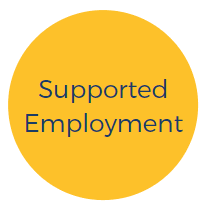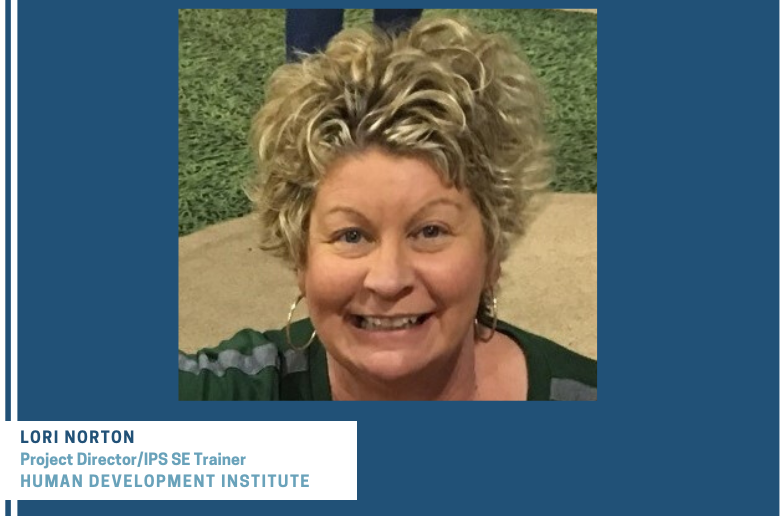Supported employment has changed a lot over the years. Both Lori Norton and Margaret Lopresto can attest to that.
Both have been involved in the field for a long time – Norton since 1992, and Lopresto since 1996. Both have also recently been recognized for their achievements in the field. Lopresto received the Excellence in IPS Training Award, and Norton earned the Rick Martinez Leadership Award.
Both are involved with the Individual Placement and Support (IPS) project at HDI, which is an evidence-based practice that helps people with serious mental illnesses and/or substance use find and keep the types of jobs of their choosing.
Lopresto is an IPS State Trainer and Norton is HDI’s IPS Project Director.
Lopresto’s award celebrates an IPS trainer who demonstrates skill and dedication in training the IPS community to strive for the best, and Norton’s celebrates an IPS leader who has increased access and built infrastructure for the community.
Lopresto said that in recent times, she had been working a lot to put new IPS sites on the map and expand existing ones, including a site that provides supported employment to youth and young adults – one of the first programs in the state to provide services to that demographic.
“Without this program, a lot of individuals would not have that opportunity. I’m very passionate about that,” Lopresto said. “It’s also good for communities. The people who are involved in our program want to work, and this program helps them do that.”
Norton, meanwhile, was quick to credit her team for making the recognition possible. That echoes the changes she’s seen over the many years in which she’s worked in IPS.
“I used to be an employment specialist and I felt so alone out there,” she said. “IPS has a real road map for services…But when I started in supported employment, there was no road map for services. We were just doing what we could.”
Now, things are different, and both Norton and Lopresto are playing a part in making sure that new IPS specialists don’t face the same challenges. And both are committed to the work.
For Lopresto, a job isn’t just a job, it’s part of who you are. And everyone should have the chance to pursue these opportunities.
“Even in this new world of Covidland, it’s still the first question people ask. What do you do?” Lopresto said. “To have employment, and not just employment, but a career, is so valuable to everybody. Individuals who do have a disability should have that resource available to them so they can have that success.”
Norton agreed, stressing that she’s seen firsthand how supported employment can
“To me, work is so much more than just a job. It really gives people hope,” she said. “One of the quotes from someone who received services from IPS said it saved her life. That was really powerful to me.”
The IPS is also pleased to share that fellow Kentuckian and colleague, Sharon Darnell, received the IPS Family Advocate Award. Learn more about IPS at ipsworks.org.
This article represents the opinions of the author and interviewee, not that of the University of Kentucky.


